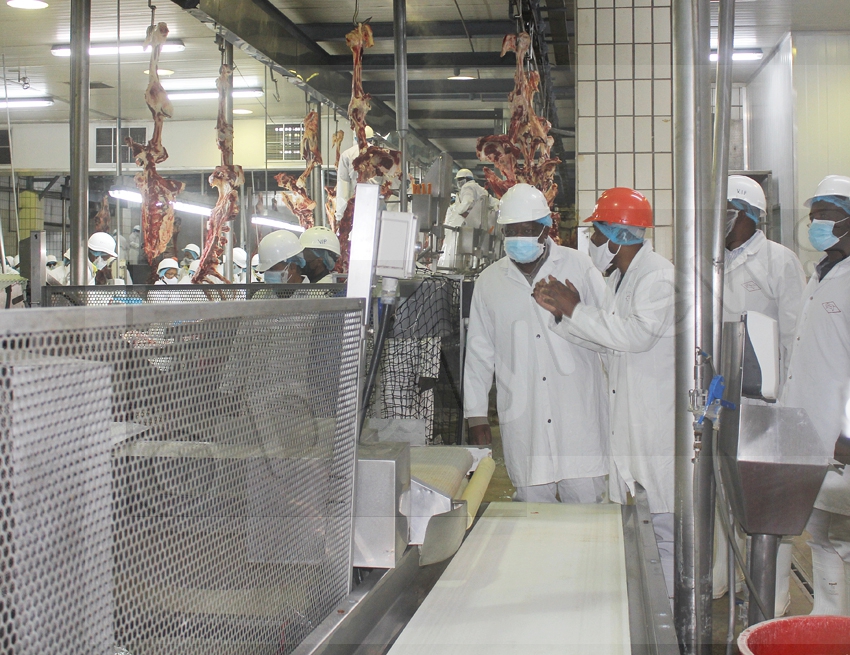Languages policy to promote equitable education
20 Jul 2021
The Ministry of Basic Education has developed a draft languages policy with the aim of facilitating a systematic way of teaching and using mother tongue as a medium of instruction in schools.
Minister of Basic Education, Mr Fidelis Molao told Parliament recently that the Draft Botswana Languages Policy in Education specified the status and role of each language in the curriculum and guided which languages may be used as a medium of instruction and which ones may be taught as subjects.
Furthermore, he said the policy would identify languages to be used as a means of instruction, in transit platform, literacy, proficiency development and communication skills at each level of education.
Mr Molao said the policy would also guide training of language teachers and pedagogy to be used in their specialisation and teaching skills, as well as to determine the nature of materials to be prepared in terms of cultural, political, social and economic content in the curriculum.
Key recommendations which would inform consultations would, among others, include introduction of mother tongue from pre-primary level until Standard Two to allow for smooth transition.
Mr Molao said while there were ongoing investigations on local languages development, so far 11 languages had been identified, with the possibility of additional languages.
The 11 languages, he said, were proposed for phase one implementation from January 2022, on grounds that they were highly developed in terms of description, codification, orthography as well as reading materials.
He said the languages were well spoken and there were already teachers who spoke them and were mostly cross-border languages also taught in countries such as South Africa, Zimbabwe and Namibia.
That means it would be easy to get readily available instructional materials for adaptation.
The languages include Sheyeyi, ThiMbukushu, Ikalanga, Shekgalagari, Chikuhane (Sesubiya), IsiNdebele, Afrikaans, Naro (Sesarwa), Shona, Otjiherero and sign language.
Mr Molao stated that the use of Setswana as a national language should be introduced as a medium of instruction in Standard One in a systematic and progressive transition from mother tongue up to Standard Three.
He said Setswana would be taught as a compulsory subject for all citizens to foster national unity and cultural identity.
Mr Molao noted that the draft policy sought to reform education towards fulfilment of social and economic aspirations identified in National Development Plans (NDPs), Vision 2036 as well as Millennium Development Goals (MDGs).
He said the Botswana Languages Policy in Education aimed at promoting language development and quality education that was accessible, equitable and relevant to all learners.
The policy would also serve as a democratic and unifying factor for a proud and self-respecting nation and promote languages’ development and facilitate access to relevant quality education by all learners.
“This will contribute significantly to the realisation of the Vision 2036 ideals of a moral, tolerant, and inclusive society that provides opportunities for all,” he stressed.
He stated that research had demonstrated that teaching children in their mother tongue or local language, during their formative years, created a crucial foundation for their conceptual, cognitive, and affective development.
Mr Molao said the term ‘mother tongue’ should be held to mean the language that a person learned as a child usually from their parents or has been used to refer to the language which the child has acquired and mastered at home before school.
Furthermore, he explained that the policy was premised on the five national principles of Democracy, Development, Self-reliance, Unity and Botho.
He also informed Parliament that the nation-wide stakeholder consultations on the policy would run for two months, commencing August.
The minister said Batswana would be consulted prior to implementation for purposes of support and advocacy and consultations would target all ministries, Ntlo Ya Dikgosi, trade unions, district councils, the media, business community, civic and non-governmental organisations and Batswana at large. ENDS
Source : BOPA
Author : Mmoniemang Motsamai
Location : GABORONE
Event : Parliament
Date : 20 Jul 2021



